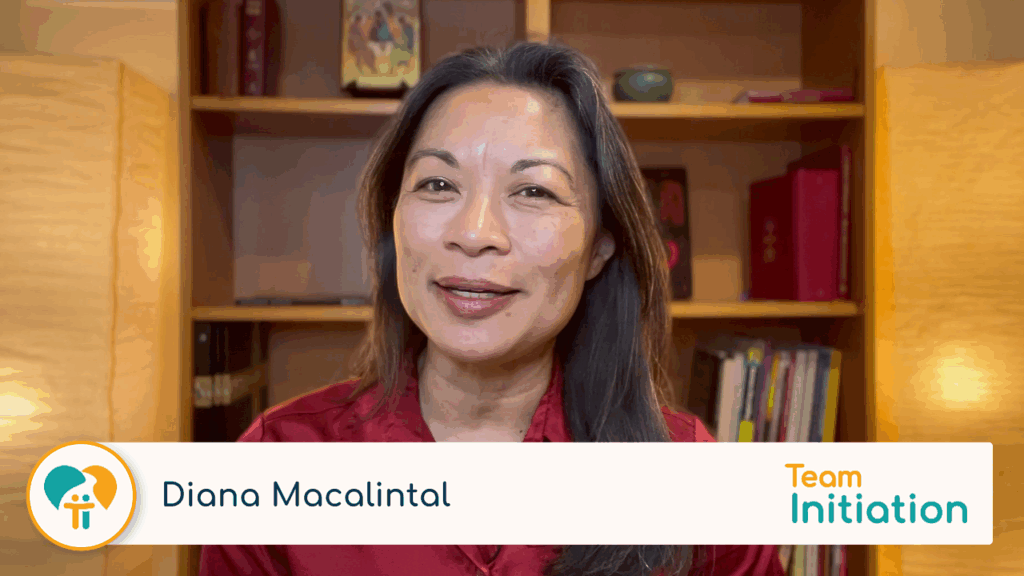The journey through the catechumenate is a profound period of transformation, but sometimes we can make the mistake of viewing evangelization as a preliminary stage with a firm stop date. But what if evangelization wasn’t just a starting point? What if it were a continuous thread woven throughout the entire catechumenate, forming active witnesses who spread the gospel in their daily lives and activities?
Some catechumenate teams unintentionally give the impression that they have all the answers, which stalls action of evangelization. I know you probably don’t think you have all the answers. But when we focus on delivering information rather than fostering a genuine encounter with Christ, the seekers begin to see us as the source of knowledge and teaching.
In order to put Christ at the center of the process, we might consider following the directives of the Order of Christian Initiation of Adults more closely regarding the period of evangelization:
This is a time of no fixed duration or structure, for inquiry and introduction to Gospel values, an opportunity for the beginning of faith. (OCIA, Outline of Part 1)
What often happens that confuses the purpose of evangelization is that catechumenate teams mistakenly provide a fixed structure with a fixed curriculum and a fixed time period for evangelization. When that happens, we miss the essence of evangelization as a dynamic, ongoing proclamation of the good news. Evangelizing isn’t a series of introductory classes on Catholicism. It is, rather, an announcement of the person of Jesus Christ in a way that sounds like good news to the seeker.
So, how do we shift our approach and engage catechumens in missionary action from day one? Here are some key principles:
- Love is the driving force: Evangelists are driven by love, extending that love even to those who may seem different or express hostility. Love should be the foundation of our outreach. We need to let the Holy Spirit inspire us and guide to connect with those who most need to hear good news.
- Closeness and encounter: Getting close to others requires genuine connection, which includes physical presence, solidarity, fellowship, and dialogue. Pope Francis said we must smell like the sheep. We do that by having real conversations with people, by listening to their stories, and offering our reasons for Christian hope.
- Listening and the first proclamation: Pope Francis says that the initial proclamation and call to conversion should begin with attentive listening. Listening involves an openness of heart, creating space for genuine spiritual encounters. Listening fosters a closeness that allows us to more deeply enter the life of the other.
- Cultivating a catechumenal culture: It might seem obvious to say that our parishes should be focused on following God’s will under the guidance of the Holy Spirit. But it is so easy to get distracted by superfluous and unessential things. We have to pray for the strength to set aside personal agendas and egos and to follow divine inspiration.
Practical steps
While the catechumenate has a period of evangelization, the work of evangelization is ongoing and never-ending. Our catechumens and candidates should be evangelists-in-training from the very beginning.
We don’t need to start from scratch to begin their training process. Start by looking at your parish bulletin and website. Your parish is already a hub of activity that has numerous opportunities for engaging the seekers in announcing the good news. The key is to identify these existing ministries and intentionally involve seekers in them.
Here are some examples of what a typical parish might offer:
- Direct service ministries: Many parishes have outreach programs that serve the local community, such as food pantries, clothing drives, or shelters for the homeless.
- Visiting the sick and homebound: Some parishioners may be involved in bringing communion and companionship to those who cannot attend Mass.
- Evangelization and outreach: Look for groups focused on inviting new members into the church or supporting those on the margins.
- Justice and advocacy: Some parishes support organizations that advocate for social justice issues or work to address systemic problems in the community.
The next step is to involve the seekers. Encourage sponsors to invite their catechumens and candidates to participate in their family’s apostolic activities. Connect catechumens and candidates with parish social ministries for volunteering opportunities. Challenge catechumens and candidates to develop their own outreach ideas to implement.
By immersing seekers in an outwardly-focused parish life, and involving them directly in apostolic works, you can ensure you are forming them to be missionary disciples. As they see your parishioners modeling discipleship in action, the catechumens and candidates will be formed in how to act as effective witnesses to the gospel.
By immersing seekers in an outwardly-focused parish life, and involving them directly in apostolic works, you can ensure you are forming them to be missionary disciples.
Involve the parish community
Catechumens and candidates learn the apostolic way of life by being immersed in a parish community that walks the talk. The parish should be a beacon, living the faith outwardly. Consistent outreach will naturally spark curiosity, creating opportunities for both parishioners and seekers to share their own reasons for having hope in Christ.
Our primary mission as members of the baptismal priesthood is to transform lives through our witness. By immersing catechumens and candidates in an outwardly-focused parish life and providing direct apostolic opportunities, they can cultivate a vibrant, active faith.
Conclusion
The goal or initiation ministry is to form catechumens and candidates as missionary disciples who draw others to the joy of Christ. When we cultivate a catechumenal culture where evangelization is a constant attitude, formation for discipleship flows naturally. By adopting these principles and practices, your community can effectively reach out, support seekers, and accompany them toward encounter with and deeper conversion to Jesus Christ.
Join us for our next online training webinar!
Catechesis for Conversion: How to Hand on the Treasures of our Faith
Are you ready to move beyond ineffective teaching methods and help seekers experience a deeper, more meaningful conversion to Christ that prepares them for a life of missionary discipleship? Then you can’t miss this FREE training webinar on March 12, 2025 at 11:00 AM Pacific Time!
Can you help me out?
I’d love to know how this is landing. Can you share a word or a phrase about how this article resonates with you? Does it speak to your experience? Share your thoughts in the comments box below. Thanks for being part of the conversion!


















